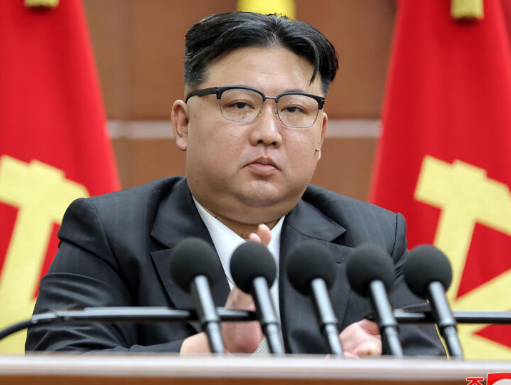North Korea’s military announced on Wednesday that it would “permanently shut off and block the southern border” with South Korea, informing the United States military in an effort to avoid accidental clashes.
In its statement, Pyongyang declared its intention to “cut off roads and railways” that could have facilitated travel between the two Koreas in the future.
Although described as a “major military step” by North Korea, analysts suggest this is likely the continuation of a long-standing process.
Inter-Korean relations are at their lowest point in years, with Pyongyang closing agencies dedicated to reunification and declaring South Korea its “principal enemy.”
The nuclear-armed nation was expected to nullify a landmark inter-Korean agreement signed in 1991 during a key parliamentary meeting that ended on Tuesday. This is part of leader Kim Jong Un’s effort to formally designate South Korea as an enemy state.
However, in a Wednesday report announcing the appointment of a new defence chief, No Chol, who replaced Kang Nam, state media made no mention of the 1991 agreement being scrapped.
Later that day, North Korea’s army declared plans for “a substantial military step” to “completely cut off roads and railways connected to the ROK (South Korea) and fortify the relevant areas on our side with strong defence structures.”
The army also stated it had sent a telephone message to US forces on Wednesday morning to “prevent any misjudgement and accidental conflict over the fortification project to be launched in the southern border area.”
While the border is one of the most heavily militarised in the world, it did not prevent a North Korean from crossing into the South in August.
In July, Seoul reported that Pyongyang had spent months laying landmines and erecting barriers, effectively turning the area along the fortified border into a wasteland.
In June, South Korea’s military reported that North Korean soldiers working to reinforce the border had suffered “multiple casualties” due to landmine explosions.
That same month, Seoul’s intelligence agency observed signs that North Korea was demolishing parts of a railway line connecting the two Koreas.
“North Korea has already been demolishing parts of the Donghae Line railway, seemingly to completely sever its connection to the South,” Yang Moo-jin, president of the University of North Korean Studies in Seoul, told AFP, describing the latest statement as “official confirmation.”
North Korea’s military reiterated that its decision was a “self-defensive measure” in response to South Korean “war exercises” and visits by US strategic nuclear assets.
Although no constitutional changes regarding Seoul were reported at this week’s parliamentary meeting, Hong Min, a senior analyst at the Korea Institute for National Unification, speculated that North Korea may be waiting for the outcome of next month’s US election before making further moves.
The announcement of No’s appointment follows a statement by Seoul’s defence chief on Tuesday, suggesting that North Korean soldiers were likely fighting in Ukraine alongside Russian troops, with some believed to have been killed and more expected to be deployed.
AFP
